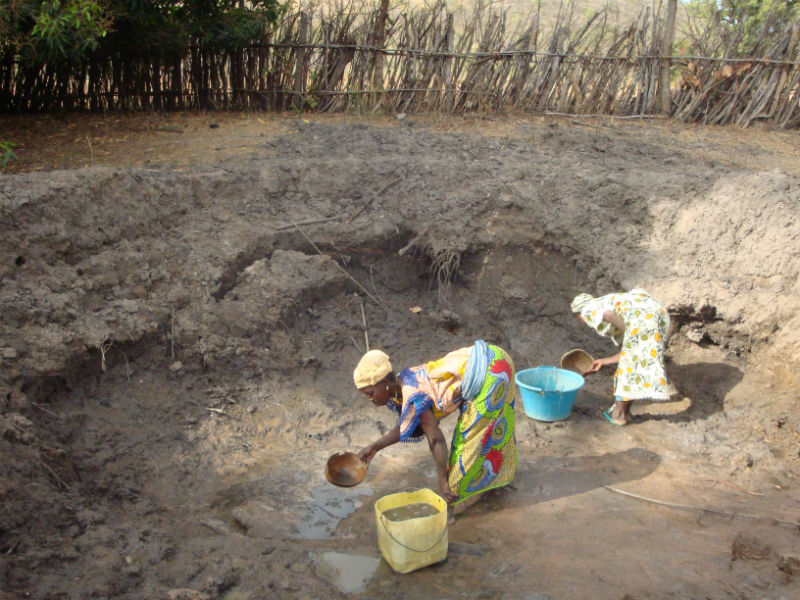Location
Kafori, Kedougou Region, Senegal
Community Description Kafori is a bustling Pulaar bush village located in the southeast of the Kedougou region. The community is home to approximately 1,200 people in 150 comp
Kafori is a bustling Pulaar bush village located in the southeast of the Kedougou region. The community is home to approximately 1,200 people in 150 comp
ounds. It is spread across 6 kilometers consisting of 4 neighborhoods, making the village appear sparse and small upon first appearances.
The village is an agricultural-based village, which produces mostly peanuts, corn and rice. During the dry season after the harvest season, the community mostly
rests, but some turn their focus to dry season gardening.
The village is lucky to have been given three Indian hand pumps for deep bore wells. This means that three of the neighborhoods are blessed with year-around water and easy accessibility. Each neighborhood also has a women’s group, which has been given supplies from both Peace Corps and USAID to initiate gardens.
The neighborhood where this project will be undertaken is in an area with a high water table, but during the dry season, which lasts from November to May, there is no available water within a 30 minute walk. The neighborhood is currently building a well that will be used for the compounds in the area, so they will not have to travel so far for water. However, that well will have high traffic, serving the entire neighborhood of 250 members.
Project Description
This project is to build a well for the Halimatou Suare Women’s Group.
The well will be a simple hand-dug well, lined with cement. It will be one meter across and seven meters deep.
The water, which will be potable, will be available for the local community members, and will prevent strain on the neighborhood well. However, the main purpose of this well will be to irrigate the garden.
Since the water table is high, there will be year-round water at seven meters, which will ensure that the garden group will be able to keep up their work all year. This well will be drawn with a pulley, and the group has already collected many 20-liter jugs that they use to store water for their garden.
For the construction of the well, 4 members of the community have volunteered to do all the labor. The leader of the construction workers is a man named Boubacar Suare, who has previously helped to build wells in the community.
Boubacar and his three workers have agreed to do the work for just a lunch meal each day.
 Both the workers and the women’s group are very eager to begin and establish this well to continue their garden. Since Kafori is about 40 kilometers from the regional capital of Kedougou, the vegetables produced are the only ones the villagers have, and they rely strongly on them for meals.
Both the workers and the women’s group are very eager to begin and establish this well to continue their garden. Since Kafori is about 40 kilometers from the regional capital of Kedougou, the vegetables produced are the only ones the villagers have, and they rely strongly on them for meals.
Project funds will be used to purchase the cement, rebar, plywood for the cylinder construction, wire, nails, and food for lunch (rice, onions, salt, and oil). The four men have gathered all their own tools, and have begun digging the well and collecting the sand for the lining. Once the rest of the supplies are purchased, President of the Community Rural will transport them to the community.
Project Impact
The project will benefit the 33 individuals who comprise the garden group, and their extended families.
Peace Corps Volunteer Directing Project
Jessica Abad
Comments
With the completion of this well, the garden group will be able to have a year-round garden, while lessening the amount of effort they are currently using to get water. The well will allow the women of the group to expand their product yield, and help provide for the nutritional and economic wellbeing of their families.
Dollar Amount of Project
$555.00
Donations Collected to Date
$555.00
Dollar Amount Needed
$0.00 – This project has been fully funded through the generosity of Pravin Patel of Altamonte Springs, FL, USA, in memory of Valiben Patel.
We encourage others to continue to donate using the Donate button below, and we will notify Peace Corps Volunteer Jessica Abad of your donation. Additional funds will be used to fund the next project by Jessica and/or those of other PCVs in the country of service.
![]() This project has been finished. To read about the conclusion of the project, CLICK HERE.
This project has been finished. To read about the conclusion of the project, CLICK HERE.